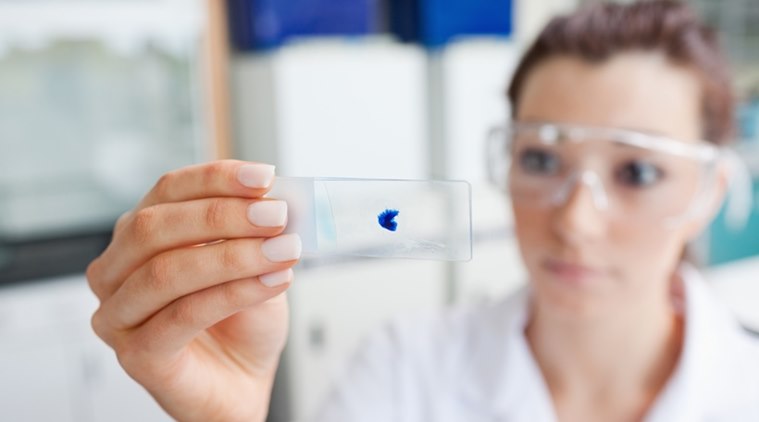IBM scientists have developed a new lab-on-a-chip technology that can, for the first time, separate biological particles at the nanoscale and could help enable physicians to detect diseases such as cancer before symptoms appear.
The IBM team show separation of bioparticles down to 20 nanometers (nm) in diameter,that offers access to particles such as DNA, viruses and exosomes.Once separated, these particles can be analyzed by physicians to potentially reveal signs of disease even before patients experience any physical symptoms seen.Until now, the smallest bioparticle that could be separated by size with on-chip technologies was about 50 times.
IBM is collaborating with a team from the Icahn School of Medicine at Mount Sinai to continue development of this lab-on-a-chip technology and plans to test it on prostate cancer
“The ability to sort and enrich biomarkers at the nanoscale in chip-based technologies opens the door to understanding diseases such as cancer as well as viruses like the flu or Zika,” said Gustavo Stolovitzky, Program Director of Translational Systems Biology and Nanobiotechnology at IBM Research. “This additional measure of time could permit doctors to make more informed decisions and when the prognosis for treatment options is most positive
Carlos Cordon-Cardo chairman of Mount Sinai Health System at Department of Pathology, said: “By bringing together Mount Sinai’s domain expertise in cancer and pathology with IBM’s systems biology experience and its latest nanoscale separation technology, the hope is to look for specific, sensitive biomarkers in exosomes that represent a new frontier to offering clues that might hold the answer to whether a person has cancer or how to treat it.”By bringing together Mount Sinai’s domain expertise in cancer and pathology with IBM’s systems biology experience and its latest nanoscale separation technology, the hope is to look for specific, sensitive biomarkers in exosomes that represent a new frontier to offering clues that might hold the answer to whether a person has cancer or how to treat it.”
Using a technology called nanoscale deterministic lateral displacement, or nano-DLD, IBM scientists Joshua Smith and Benjamin Wunsch led development of a lab-on-a-chip technology that allows a liquid sample to be passed, in continuous flow, through a silicon chip containing an asymmetric pillar array. . IBM has already scaled down the chip size to 2cm by 2cm, while continuing development to increase the technology density to improve functionality and throughput.














